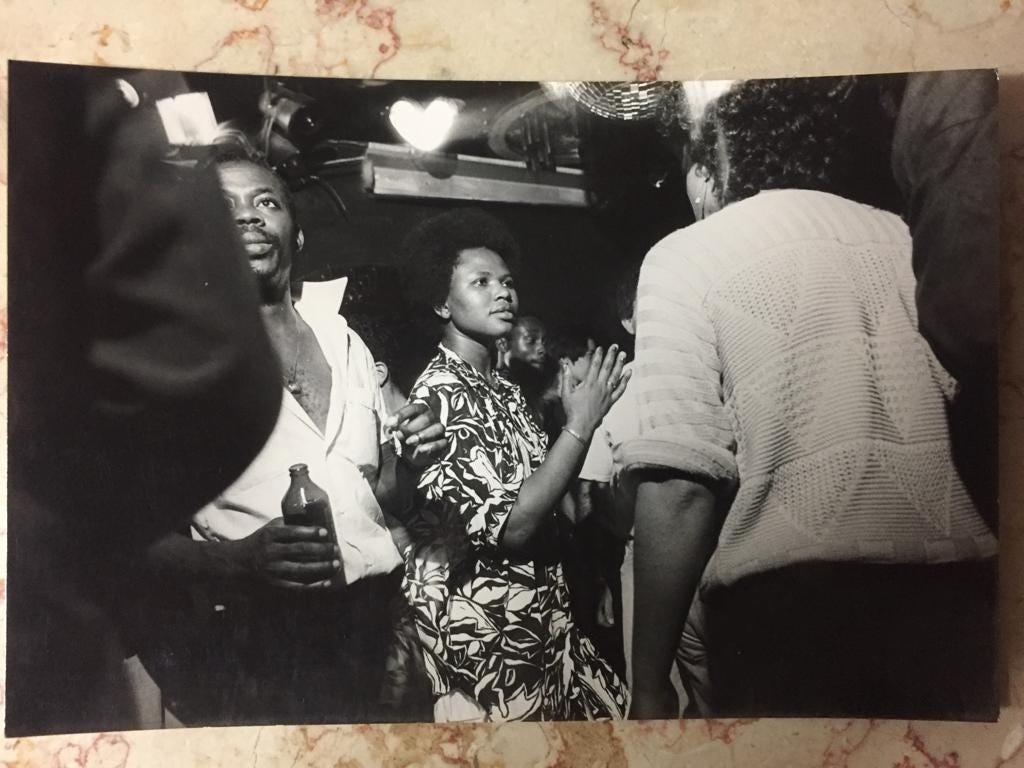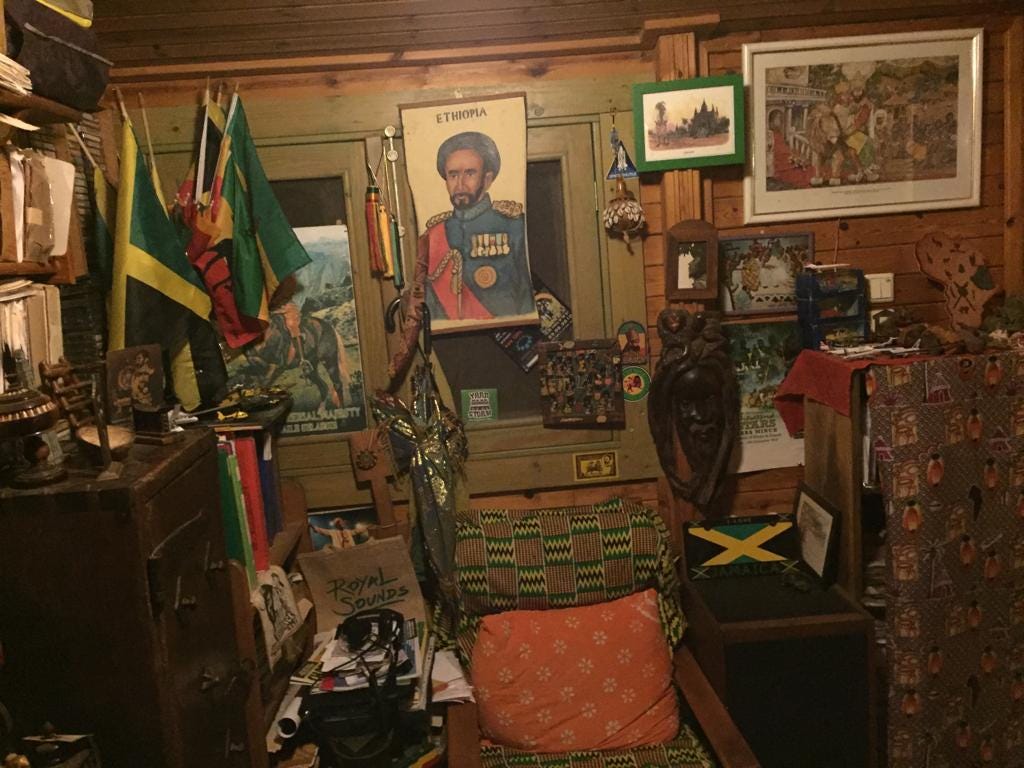African and Black Music in Israel: The Soweto Club
Prior to the 1980s, no reggae or African music clubs in Israel existed. Barring the late Bob Marley’s discography, existing Israeli clubs seldom even played such genres. In 1985, returning from a six-month stay in Jamaica, reggae and African music promoter Guil Bonstein was eager to change that.
“I came back to Israel with lots of records, lots of music,” said Bonstein. “In 1985 for the first time in Israel, a reggae, black music club opened in Tel Aviv.”
Thus, the Soweto Club was born.
Named after the South African township and home to the late Nelson Mandela, Soweto is largely responsible for the popularization of genres such as reggae and dancehall in Israel. It served as a hailing to black and African music and cultures—a vibrant basement venue adorned in red, green, yellow, and black and with a portrait of Emperor Haile Selassie I of Ethiopia mounted on the wall.
“There was a night livicated to hip hop and rap,” said Bonstein, using the Rastafarian term combining the words “live” or “living” and “dedicate.” “It was, I think, Wednesday night. Tuesday night was livicated to soul music. The other nights were strictly reggae and African music.”
Club attendees performing. Courtesy of Guil Bonstein.
At Soweto, which was packed with a remarkably diverse crowd virtually every night, attendees not only listened and danced, but felt comfortable to perform as well. A week after the club’s opening, a visitor mounts the microphone and begins to sing over a playing record. All the way from the kitchen, Bonstein is mesmerized.
“I take a look and I see a tall guy, black guy, a Jamaican—we don’t have so many Jamaicans in Israel,” said Bonstein. “I see him at the mic singing and doing some DJ style. Just came in the afternoon and just came inside.”
The man was none other than Michael George Henry OD, better known as Ras Micahel, reggae artist and specialist in Nyabinghi, the oldest group or “mansion” of Rastafarianism named after Queen Nyabinghi who ruled over Uganda in the 1700s. Nyabinghi nurtures the connection between Rastafarianism and its African heritage through religious gatherings called groundations. Nyabinghi drumming, the style of music played for praise and worship at these gatherings, created the rhythmic foundation for Rastafarian genres reggae, ska and rocksteady.
Though only in Israel to visit Jerusalem, the Holy City which holds religious significance in both Rastafarianism and Judaism, Ras Michael ended up staying in Israel for about five years. Each of those years, he was the resident MC, DJ and entertainer at the Soweto Club. Bonstein names Michael’s performances at Soweto as “the start of hip hop in Israel.”
Inspired by Michael’s style and skill, many young aspiring artists began to flock to Soweto, eager to grab the microphone and share their talents.
“Every evening I have suddenly young people in Israel that want to put some lyrics on the microphone, because they see Ras Michael, the Jamaican resident DJ,” said Bonstein. “They see what he’s doing and they begin to start listening to reggae.”
The growing attraction to reggae led Bonstein to later open the Soweto Shop, selling thousands of imported reggae and African music records. Israelis were listening to reggae, and the music scene was changing. Even Israeli international reggae artist Gil Binyamin, known by his stage name Silver Don, was first exposed to the genre during nights at Soweto. He now resides in Jamaica, a successful musician generally respected among masses.
Guests at the Soweto Club. Courtesy of Guil Bonstein.
Though no longer in operation, Soweto was once a must-visit spot for all in or near Tel Aviv. Working at the time with Israeli music promoter and producer Shuki Weiss, Bonstein coordinated tours for numerous celebrity artists and musicians. Whoever Bonstein helped to bring through Tel Aviv, he brought to Soweto. From English reggae pop band UB40 to famed Ivorian reggae artist and singer of the 1986 hit song “Jerusalem,” Alpha Blondy, it was not entirely uncommon to find highly recognizable faces and stars at the Tel Aviv waterfront club.
In the early 1990s, Soweto earned a new recurring guest. Jamaican-born Jewish Yehoshua Sofer, born Nigel Winston and much better known as Nigel Haadmor, was in the early stages of his Aliyah and looking to share his unique hip hop sound.
“This guy came to me and he was speaking like a Jamaican, totally like a Jamaican guy. And after one or two or three visits to the club, he came to me and sung to me some tunes that he wrote. And I’m totally amazed,” said Bonstein.
Haadmor is commonly credited with the origins of hip hop in Israel, with the production of his first and sole 1993 album “Hummus Metamtem,” or, in English, “Hummus Makes You Stupid.” The album was a breakthrough in the Israeli hip hop scene. Soweto and Bonstein helped it come to fruition.
The Soweto Club. Courtesy of Guil Bonstein.
“I call Yossi Fine,” said Bonstein, referring to the legendary and monumentally famous Israeli bassist and producer. “Since we are friends since 14 years old, I call him and tell him, ‘Listen, there’s something extremely special here. Come to see this talent.’”
According to Bonstein, upon hearing Haadmor’s work, Fine made an immediate decision to collaborate with him. This is how Fine, former bassist to renowned artists such as David Bowie and producer to iconic Israeli hip hop funk band Hadag Nahash, came to produce “Hummus Metamtem.”
Bonstein’s affinity for African and black styles of music is profound. Even his music promotion company, Riddim Productions, is named for the Jamaican patois pronunciation of the word “rhythm.” Bonstein’s fondness for reggae and African music stems from more than a simple enjoyment of the songs, but a feeling of true connection to the cultures, and particularly to the Rastafarian faith. He discovered reggae for the first time while in Paris in 1977. He had just completed his mandatory military service in Israel and was on an international tour. Though reggae and the Rastafarian culture and faith were completely foreign to the young Bonstein, he felt an instant kinship.
“It was, to us, fascinating to discover this really—these people that do this biblical music with biblical messages,” said Bonstein. “I felt connected, as a Jew, to the Jamaicans.”
It is not difficult to understand why, as Rastafarianism and Judaism share multiple ideals. The Promised Land, Zion, the Holy City of Jerusalem—these themes exist and are revered in both religions. Rastafarians believe their leader, the late Emperor Haile Selassie I, to have been a descendant of King Solomon and the Queen of Sheba, and thus a relative to King David.
Understanding and appreciating the parallels between Rastafarianism and Judaism, Bonstein makes a point of scheduling visits to Jerusalem for every reggae artist that he works with. Even if only for a few hours, it is imperative to Bonstein that each person is granted the chance to see the city.
The Soweto Club. Courtesy of Guil Bonstein.
“Many times the promoter or the tour manager that came with them tells me, ‘This one is the best concert,’” said Bonstein. “Because they’re seeing their roots of Israel and Jamaicans.”
Still very much plugged into the Israeli music scene, Bonstein is enthusiastic about the rapidly developing hip hop and rap scene in Israel, which he helped to create. He is impressed with the talents of young artists such as Nechi Nech, born Ravid Plotnik, 21-year-old Ethiopian Eden Dersso, Nissim Black and many others. He is also excited by the more recent introduction of Jamaican dancehall music and styles to Israel.








